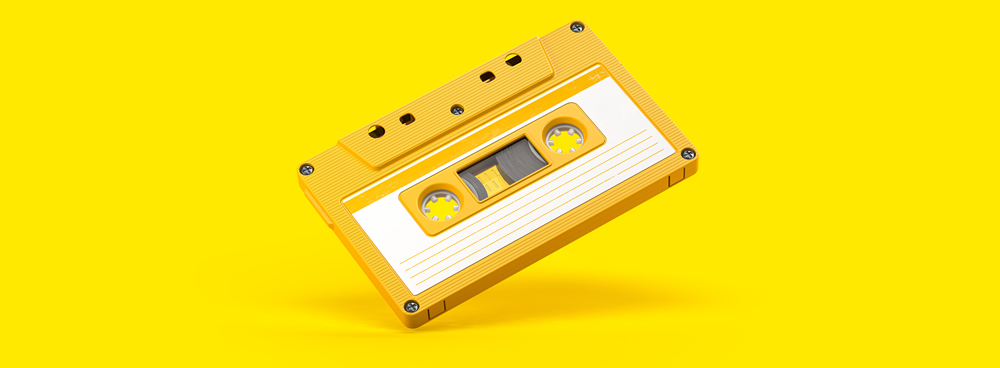
Adventures in audio
I loved mucking about with sound from a young age. My grandparents bought me my first cassette recorder and would indulge me by playing characters and letting me record them doing daft voices.
I'd record the family. Gather sound effects. Record sketches. Interview friends in the street. I'd often immerse myself in the soundscape of a walk through town with headphones on, all the time recording everything I heard.
Later, I discovered reel to reel recorders and learnt the art of editing magnetic tape with a razor blade, speeding it up, slowing it down, even playing stuff in reverse. It was a revelation. Later still, computer software let me have fun recording, editing and mixing audio.
Cassette tapes were passed around amongst friends. Later, MP3s were shared via email before I figured out they could just as well be hosted on a website.
I remember discovering SAM Party DJ software when someone needed music played out from a computer in a pub. I later stumbled upon its sister product SAM Broadcaster - similar software that could additionally be used to send the audio to a Shoutcast server and allow anyone to listen to your handpicked tunes from across the internet.
SAM Broadcaster was a revelation. I was aware, of course, that radio stations could transmit their audio via the web for people to listen to from virtually anywhere. This was regardless of the limitations of the traditional AM and FM frequencies. Indeed, for years I’d been sampling radio stations from around the world in just this manner. But somehow, it had eluded me that individuals also had access to this same technology. Like most people, I thought internet streaming was for the BBC bigwigs and the established media companies. It just never crossed my mind that anyone could do it. SAM Broadcaster was the realisation that creating a personal radio station could be in the hands of anyone who wanted it.
So, in early 2008, I purchased SAM Broadcaster then set out to find somewhere to use it. I wasn’t interested in running my own station at that particular moment. I just wanted to tap into an existing radio station where I could perhaps fit in a show of my own on their schedule. This was a much harder task than that it is now. Stations were certainly in abundance but you needed to make a personal approach to each one to prove your worth and ability. No one station seemed particularly popular or professional or busy. Everything felt niche. Websites were ugly and basic and told you very little about the shows or presenters who broadcast on it. It was all very boring and fairly disappointing.
Freecast was a station I stumbled upon by accident which didn't seem to require auditions or specialised music interests. Anyone could broadcast. And so I duly signed up.
But Freecast wasn't really a radio station. It was just a forum with a free shoutcast server where anyone could have a go at doing a show. I've written more about it here.
And so, quite quickly, I lost interest in Freecast but became excited by the notion of starting my own station.
Posted by Tim on Tue 08 Mar 2022 at 17:18 and viewed 2,086 times.
Mystery DJs
Dj Hix

